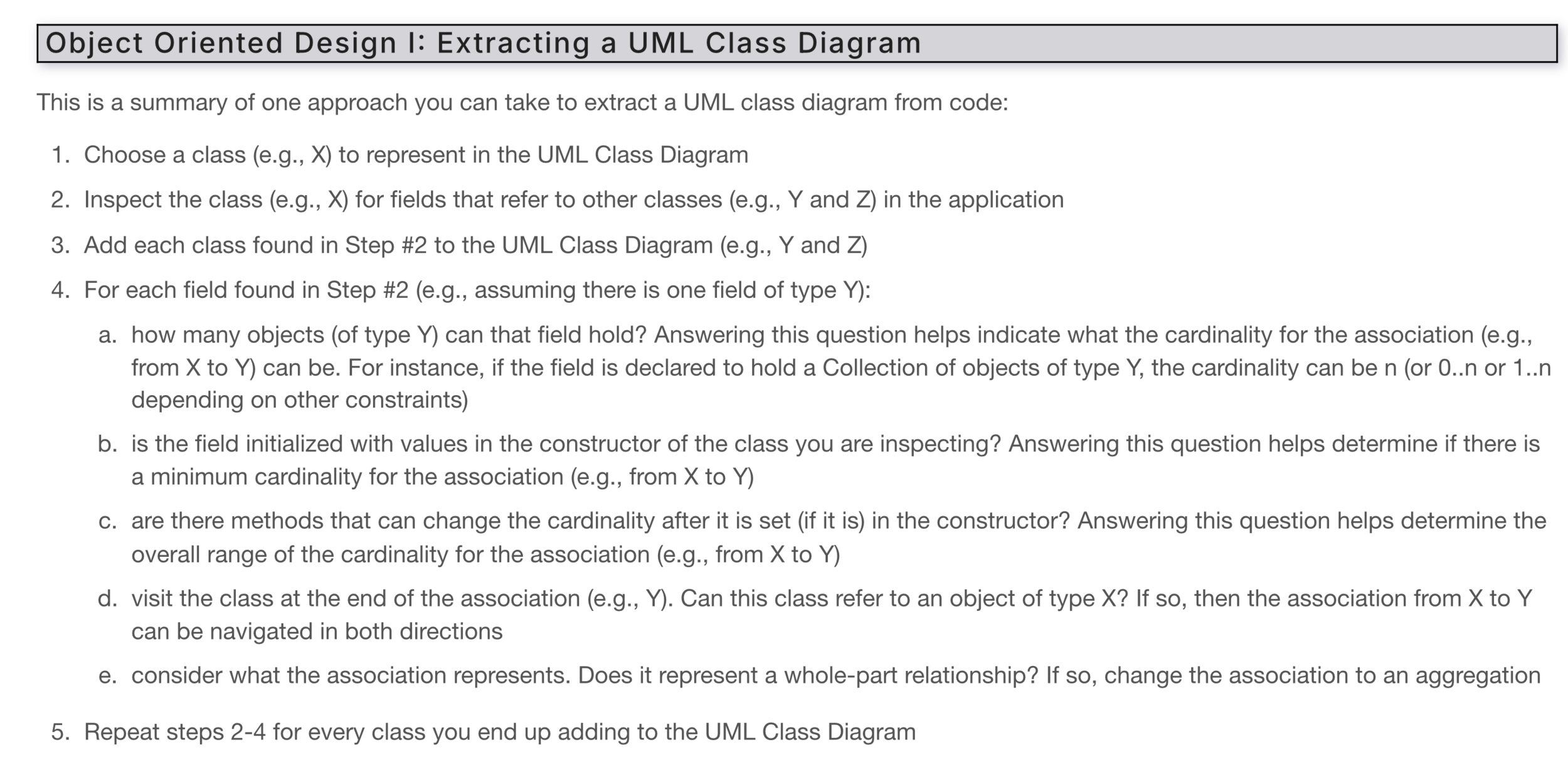CPSC 210
C4: Extracting UML Class Diagrams

Learning Goals
- Extract a UML class design diagram from a given Java code base

UML Class Design Diagrams
-
A UML class design diagram is a model of the code
- it does not include all the detail of the code
- it facilitates communication about code design
- it helps understanding the code
-
class diagram for existing codebase is useful if you
- want to modify the functionality
- want to extend the functionality
Pod Activity (Do in Groups of 3-5)

- Let's discuss the Pros and Cons of UML diagrams.
- Consider the following questions:
- Why do UML diagrams exist? What purpose do they serve?
- What are some advantages of representing code with UML diagrams?
- What are some disadvantages of UML diagrams?
- Why do UML diagrams exist? What purpose do they serve?
Type Hierarchies
- Examine interface and class declarations to identify type hierarchies
public ClassB extends ClassA implements InterfaceA, InterfaceB {
// ...
}Arrowheads are "closed" for type hierarchies
ClassB
ClassA
InterfaceA
InterfaceB
<<interface>>
<<interface>>
Type Hierarchies
- Examine interface and class declarations to identify type hierarchies
public ClassB extends ClassA implements InterfaceA, InterfaceB {
// ...
}ClassB
ClassA
InterfaceA
InterfaceB
<<interface>>
<<interface>>

Associations
- Examine the fields of each class to identify associations
public ClassA {
private List<ClassB> myListOfB;
private ClassC myCObject;
}
public ClassC {
private ClassA myAObject;
}?
?
?
ClassB
ClassA
ClassC
Arrowheads are "open" for associations
Multiplicities
Identify the multiplicity of all associations:
- for references to a single object: can that reference ever be null during the lifetime of the object to which it belongs?
- for collections: how many items can be in the collection during the lifetime of the object to which that collection belongs?
Types vs Objects
Implements and extends relationships are relationships between types
Associations are relationships between objects
This class diagram reports on the relationships between objects of type ClassA, ClassB and ClassC
ClassB
ClassA
ClassC
1
1
3
Aggregation

"...there is hardly a difference between aggregations and associations during implementation, and the diagram may skip aggregation relations altogether."
- We ask: "do associations have a whole/part relationship?"
- In this case, a room makes no sense without a building!
-
However, there is a lot of room for interpretation!
- You are your own designer - argue for your design!
Room 🚪
Building 🏢
Lecture Ticket Review
secret hint for Felix
Lecture Lab


